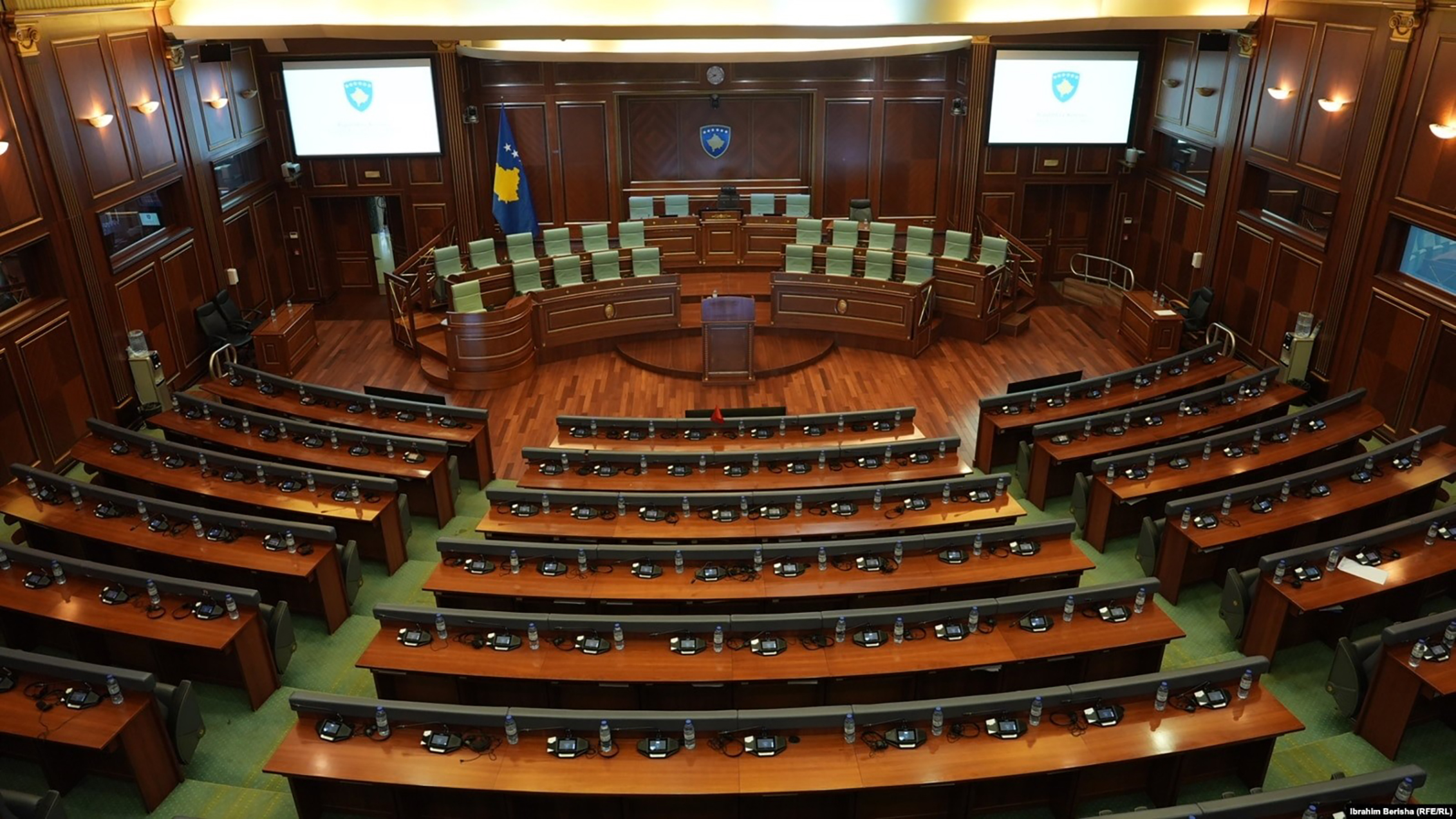A young and emerging European country, Kosovo continues trying to balance between consolidating its independence and appeasing international actors who call for cooperation with Serbia. Some significant process is being made on this front. However, one of the most pressing challenges Kosovo faces right now is the inability to form a functioning parliament. Some have even called this an “undeclared state of emergency”. So why is the new Parliament a “non-working” one, and what are the consequences of this ongoing parliamentary impasse?
Why isn’t the Parliament Working?
The Assembly of the Republic of Kosovo (Kuvendi i Republikës së Kosovës) is democratically elected every 4 years by the people of Kosovo; it has 120 seats. On February 15th of this year, Kosovo held the most recent parliamentary elections for the Assembly. The largest political party in Kosovo, Lëvizja Vetëvendosje (LVV, eng. Self-Determination Movement), came out on top with 48 seats. This was the largest share when compared to other parties, but not the majority.
As required by the constitution, Vetëvendosje needs to appoint a new Speaker of the Assembly. This new Speaker must be appointed within 30 days of the verification of the parliamentary election results and have an approval rate of at least 61 votes. So, while a plurality is sufficient for LVV to lead the Assembly, the Speaker of the Assembly must be approved by the absolute majority of all members of the Assembly.
LVV nominated Albuena Haxhiu, the current Minister of Justice, as Speaker of the Assembly. The voting process failed since the inaugural session on April 15, in which Haxhiu received 52 votes “for”, 46 “against” and 11 abstentions – failing to meet the required majority. If voting fails, it must be delayed by at least 48 hours before it can be re-attempted. In theory, the Assembly reconvenes until a conclusion is reached and the Speaker is elected.
However, the Assembly vote has failed and been re-initiated over 50 times since April 15. Albulena Haxhiu consistently receives only 52–57 votes—failing to reach the required 61. At some point, a secret ballot was proposed. Haxhiu herself stated that if she did not reach the absolute majority of votes via secret ballot, she would withdraw willingly. Major opposition parties (PDK, LDK, AAK) refuse to support Haxhiu or join a coalition with LVV, and they’ve resisted LVV’s proposals such as a secret ballot. At the same time, no alternative candidate has been proposed by any of the opposition parties. The result was a complete deadlock.
Tensions began even earlier, when opposition parties refused to verify their own mandates—a traditionally routine formality. Their stated justification for doing this was that Albin Kurti, the acting Prime Minister, chose to keep acting as a Prime Minister and vote in parliament alongside his ministers at the same time, which he can’t do according to a law he himself pushed. Kurti defended himself, saying this would leave a “power vacuum”, but later went on to send his resignation notice as acting Prime Minister and officially be sworn in as an MP. Political analysts have pointed out that this was likely the opposition’s way of also sending the message that LVV doesn’t even have enough seats to do something as basic as confirm the MP’s mandates, let alone form a government.
On June 26, the Constitutional Court gave the order to end the deadlock within 30 days – so July 26. On this day, the Assembly held one session at 2pm and one session and 10pm. Both failed, meaning MPs have disagreed with each other 54 times.
What Are the Consequences?
Kosovo’s constitution states that a Speaker must be elected before Parliament can conduct any other business, including forming a new government. After the failure that took place on July 26, MPs won’t be able to reconvene and are prohibited from taking any decisions until August 8, by order of the Constitutional Court. Observers are still waiting for details on what the Constitutional Court will do about the Assembly after August 8.
EU ambassadors and other foreign diplomats have expressed disappointment in these proceedings. As a young country trying to establish itself as stable, self-sufficient and reliable in the international community, this crisis doesn’t reflect well on Kosovo. The US Embassy in Kosovo has already expressed that this deadlock jeopardizes the integrity of Kosovo’s institutions.
Dritëro Arifi, professor of political science at UBT College in Prishtina, has even said he thinks Kosovo is in an “undeclared state of emergency”. Some might say that this is an over-exaggeration. However, seeing as Kosovo is a parliamentary republic – with the Assembly (aka Parliament) acting as the legislative body and the Prime Minister as the head of government – you start to realize that Arifi might not be exaggerating at all.
It’s the Parliament that oversees the functioning of other executive agencies. It’s the Parliament that adopts laws and ratifies international agreements. It’s the Parliament that represents the image of a self-determined Kosovo to the world. If the Parliament can’t coordinate and get their act together, how can they be expected to present a unified front to the world and rule the local population?
Without a Speaker, Kosovo cannot form a government, pass a budget, or ratify reforms. The caretaker government has no mandate to approve major decisions. “Except for the president, who has some sort of legitimacy, albeit very truncated, because the president is elected by the Assembly… So, absurdity in itself. The only institution where accountability is given is the Parliament, and we do not have a Parliament,” states Arifi.
Seeing as it’s the Assembly’s job to ratify international agreements, there are concerns regarding international funding plans which were once certain to pass. The EU Growth Plan for the Western Balkans (€880 million total) with an initial €61 million pre-financing from the World Bank cannot be received until ratification by Parliament. Not only that, but €220 million+ from the Millennium Challenge Corporation are at risk.
This money would greatly benefit Kosovo. Not only when looking at developmental projects, but they’d also be a great help in stabilizing the economy and reducing inflation.
Conclusion
At the end of the day, the citizens bear the brunt of the consequences produced by the Assembly’s inability to present a unified front. As expressed by Vjosa Osmani, the President of Kosovo, many other processes that require the Assembly’s approval are being stalled unnecessarily, including but not limited to the accession to international organizations and programs, international agreements, the delay in legislative approvals, the damage to Kosovo citizens’ trust in their government, as well as the damage to Kosovo’s image in the international community.
Kosovo’s future hinges on the ability of its elected leaders to fulfill their constitutional duties. Without a functioning Assembly, Kosovo’s governance risks grinding to a halt, with every day that passes risking the country’s access to international aid and approval. Only with a constituted Assembly can a new government be formed and the nation move forward. All eyes now turn to August 8 as a potential turning point in this ongoing crisis.



